Mennonite/s Writing X: An international conference hosted at Canadian Mennonite University
Theme: Words at Work and Play
took place June 12–15, 2025 on the CMU campus
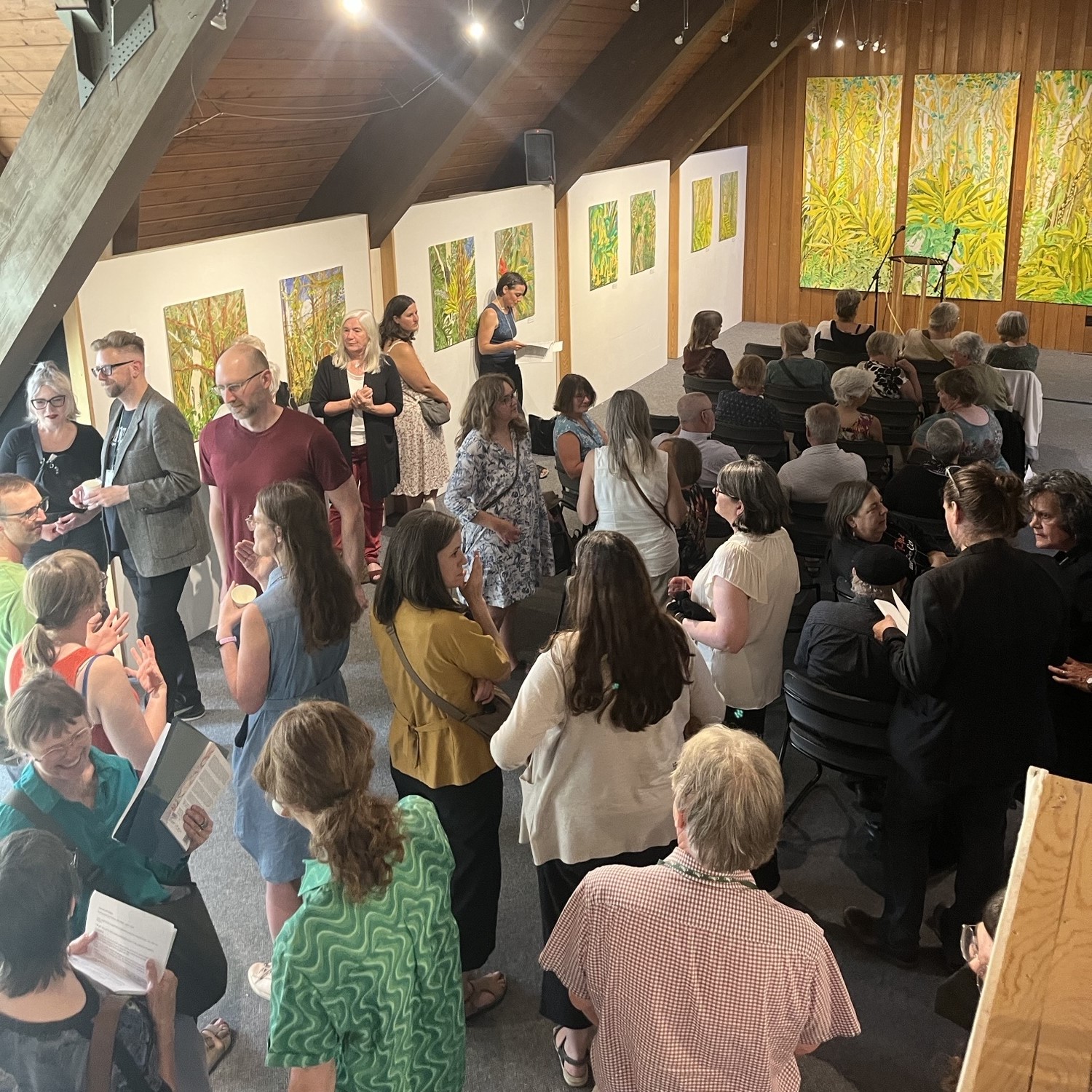
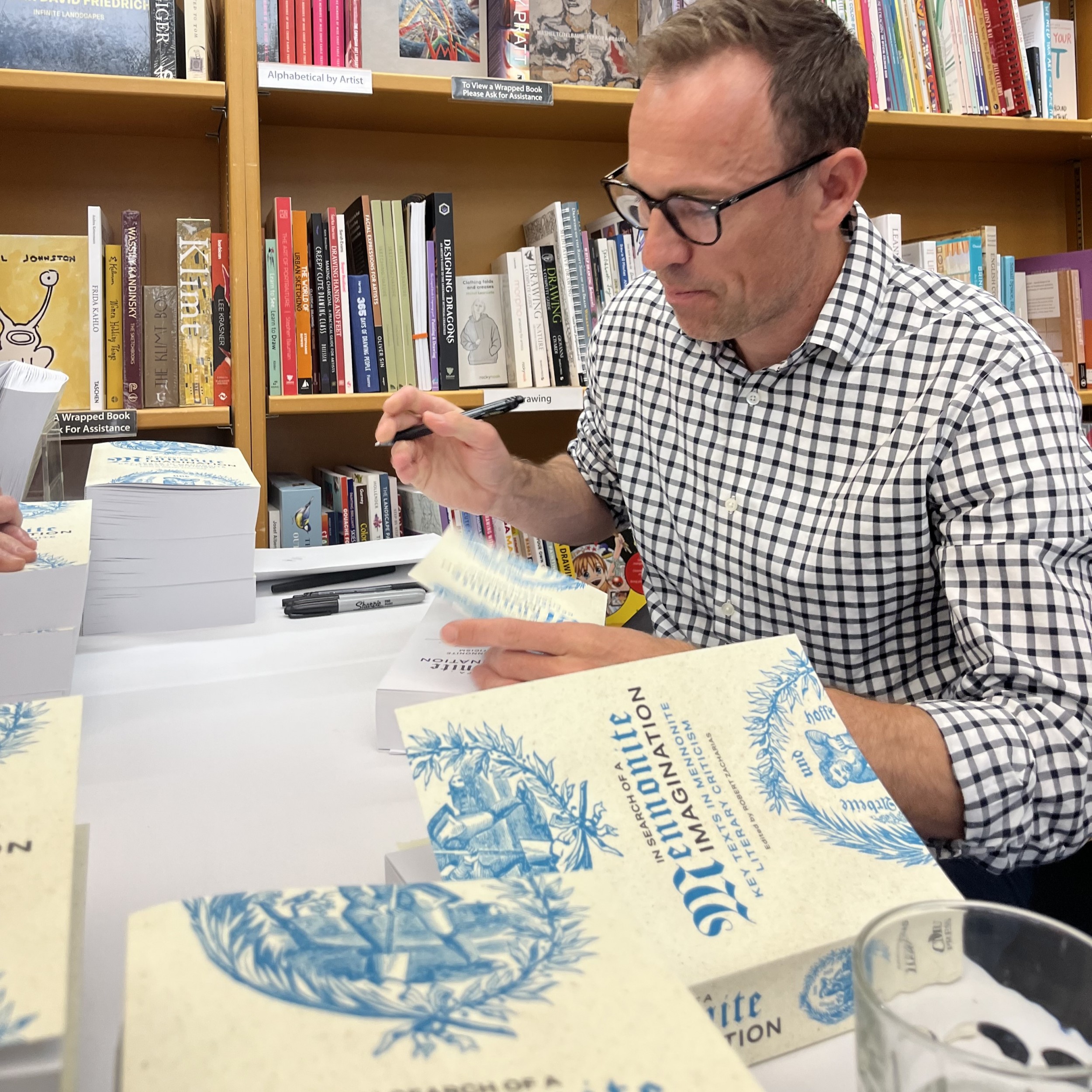

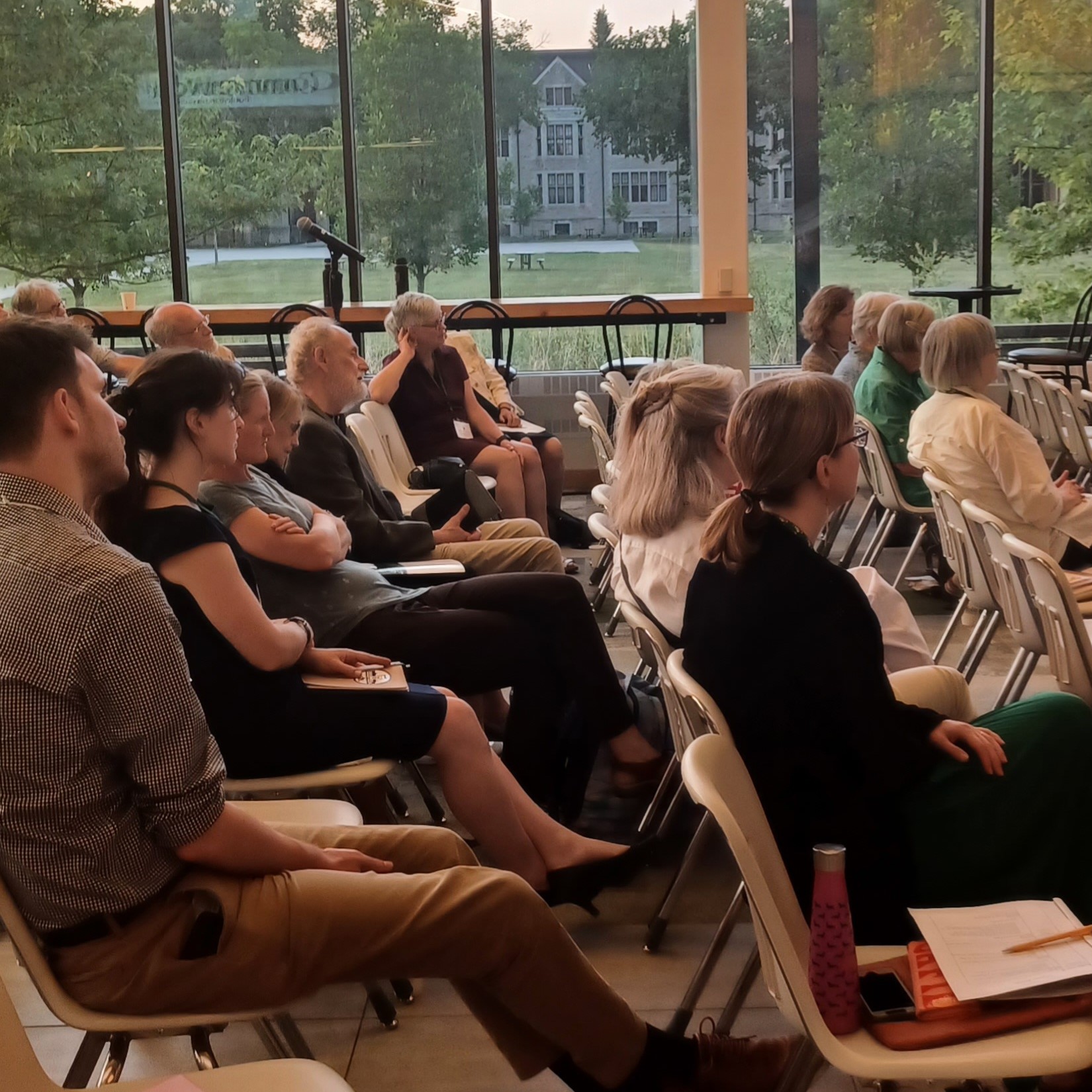
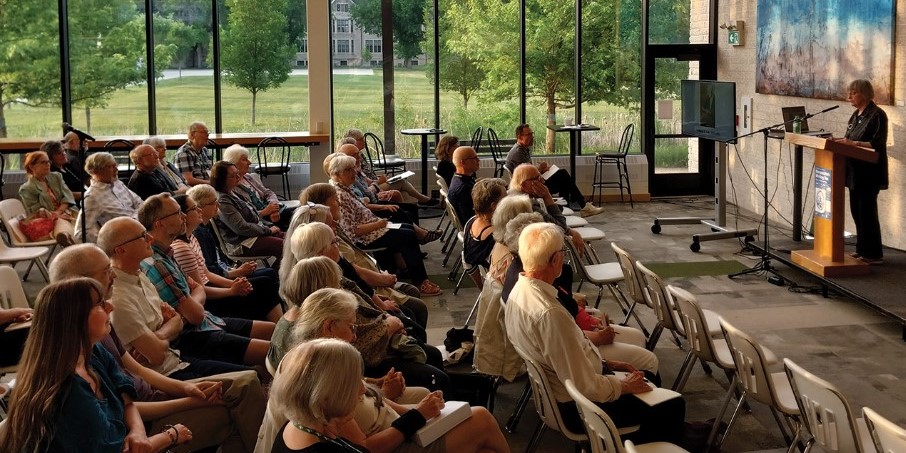
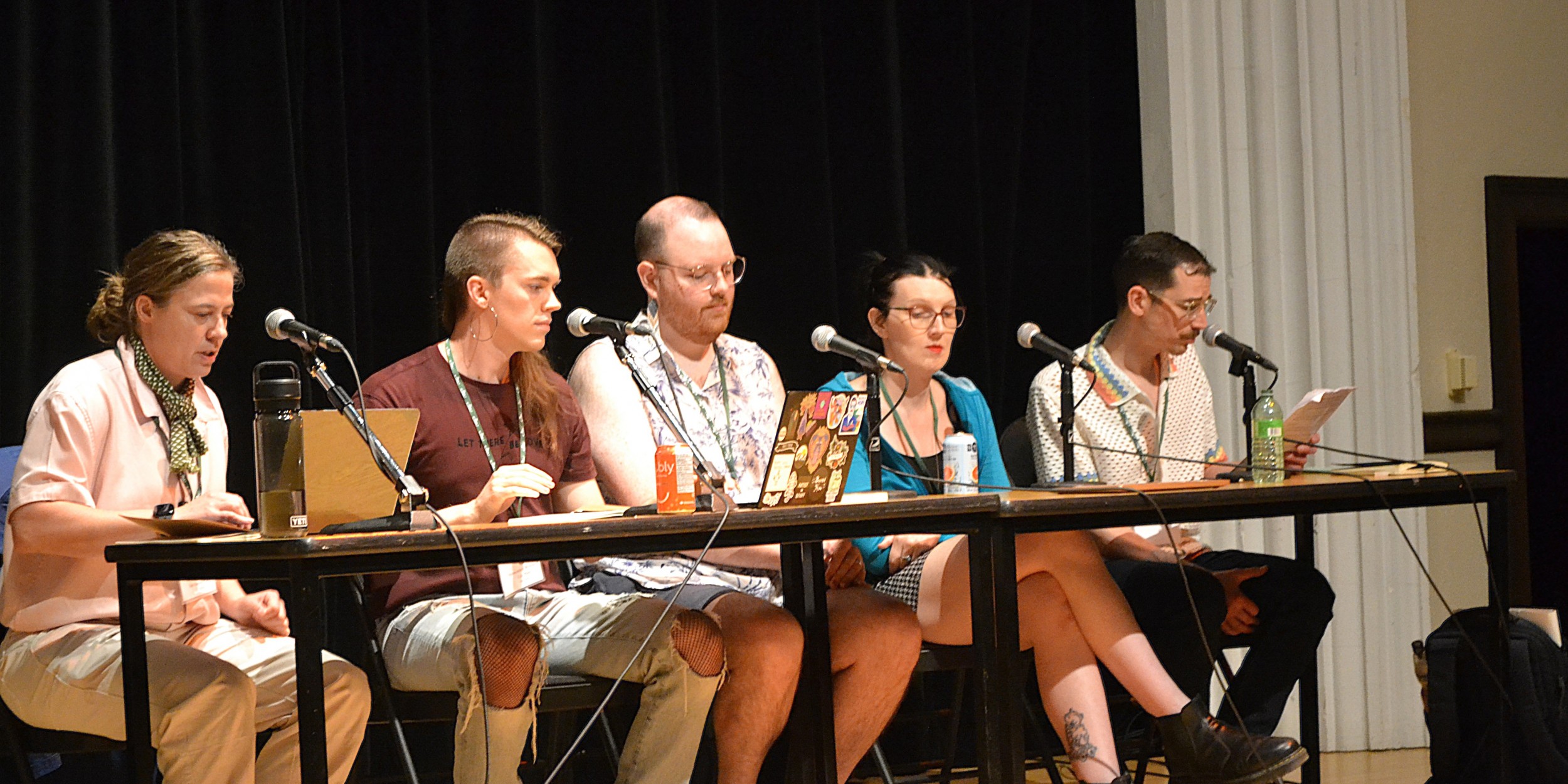
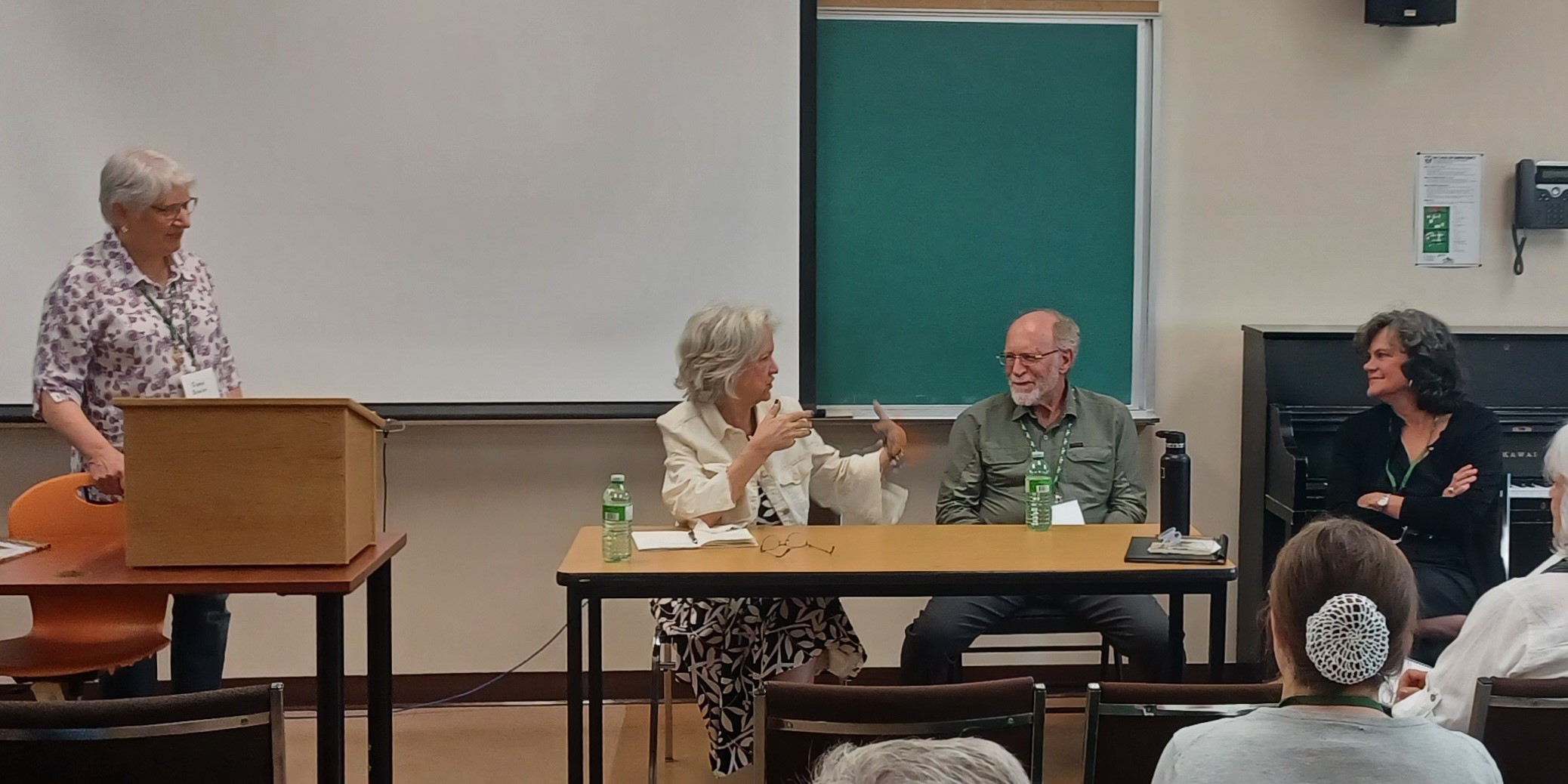
In her 2020 study, Making Believe, Magdalene Redekop attributes the surge of creative writing by North American Mennonites in the late 20th century to the "many Mennonites [who] have been willing to play and be serious at the same time." Indeed, from the martyr ballads and trickster tales of the early Anabaptists through centuries of sermons, hymns, and diaries to the bestselling fiction and poetry of today, creative writing among Mennonites has always been a type of deeply serious play. At once a form of labour and of entertainment, Mennonite literary work continues to be a source of community and transgression; a means of memory and of revision; a practice of devotion, resistance, lament, and joy. In keeping with the field's long-standing practice of working across creative and critical boundaries, Mennonite/s Writing Ten featured presentations that engaged with “words at work and play” across a variety of academic disciplines and creative genres.
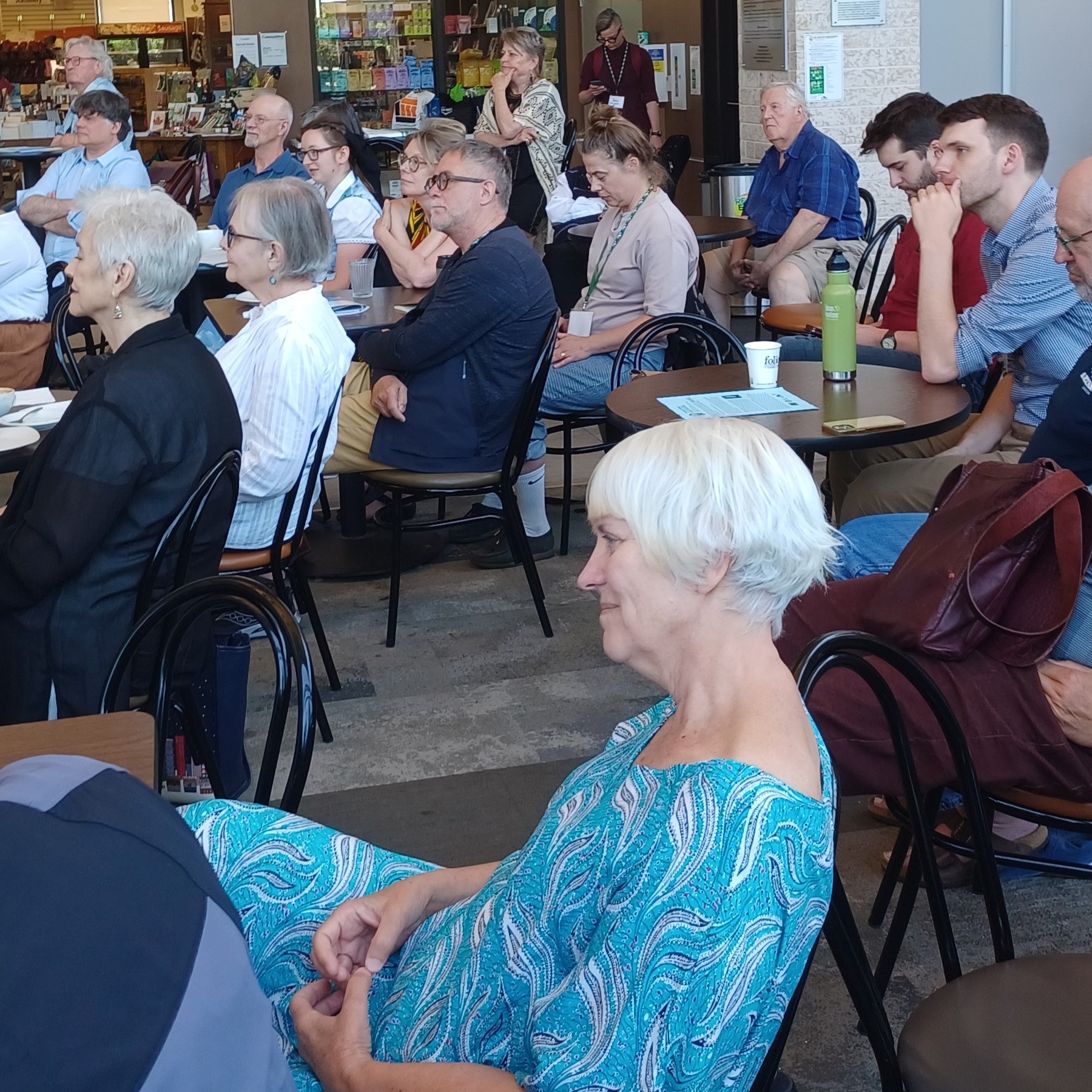
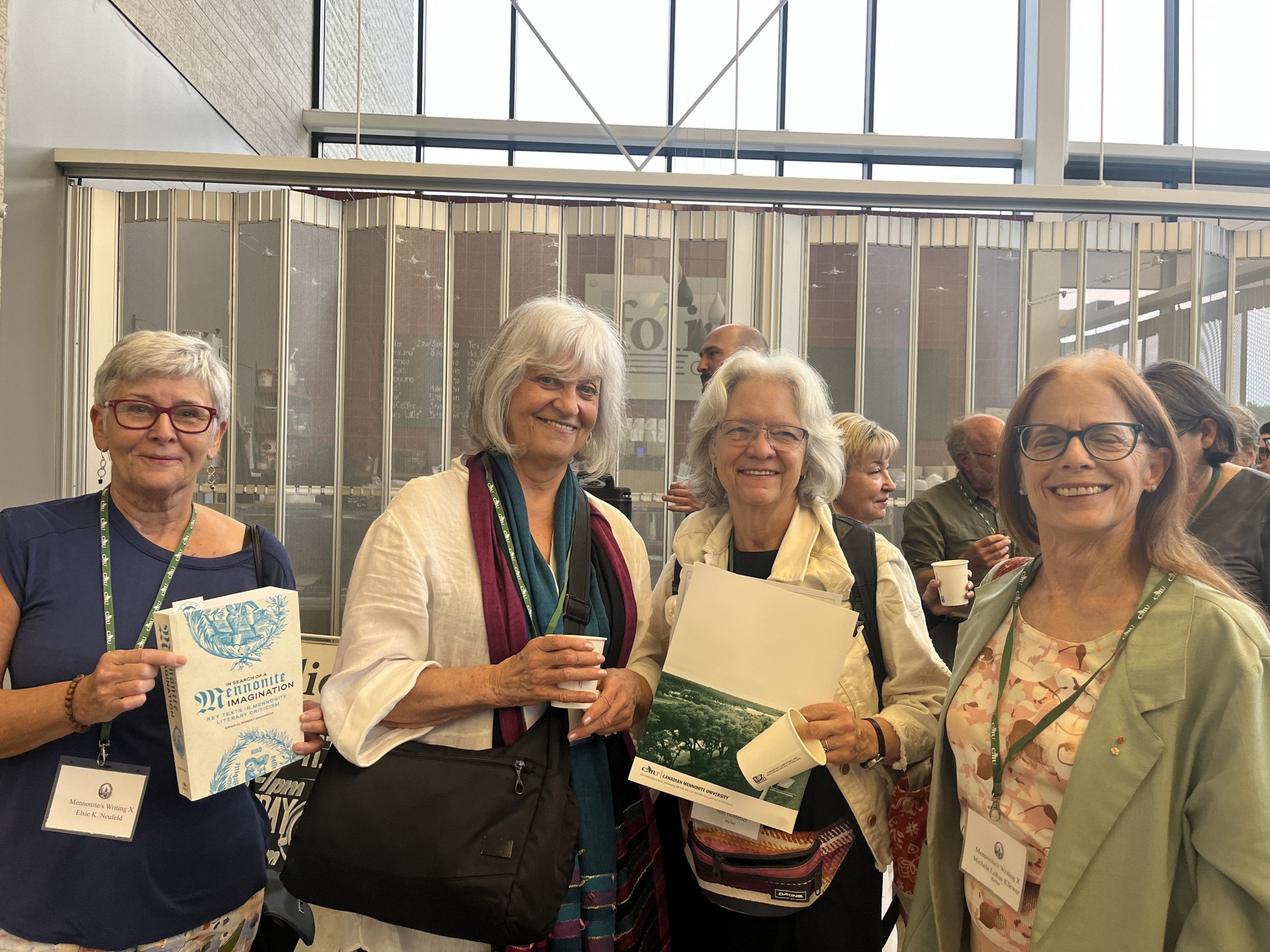
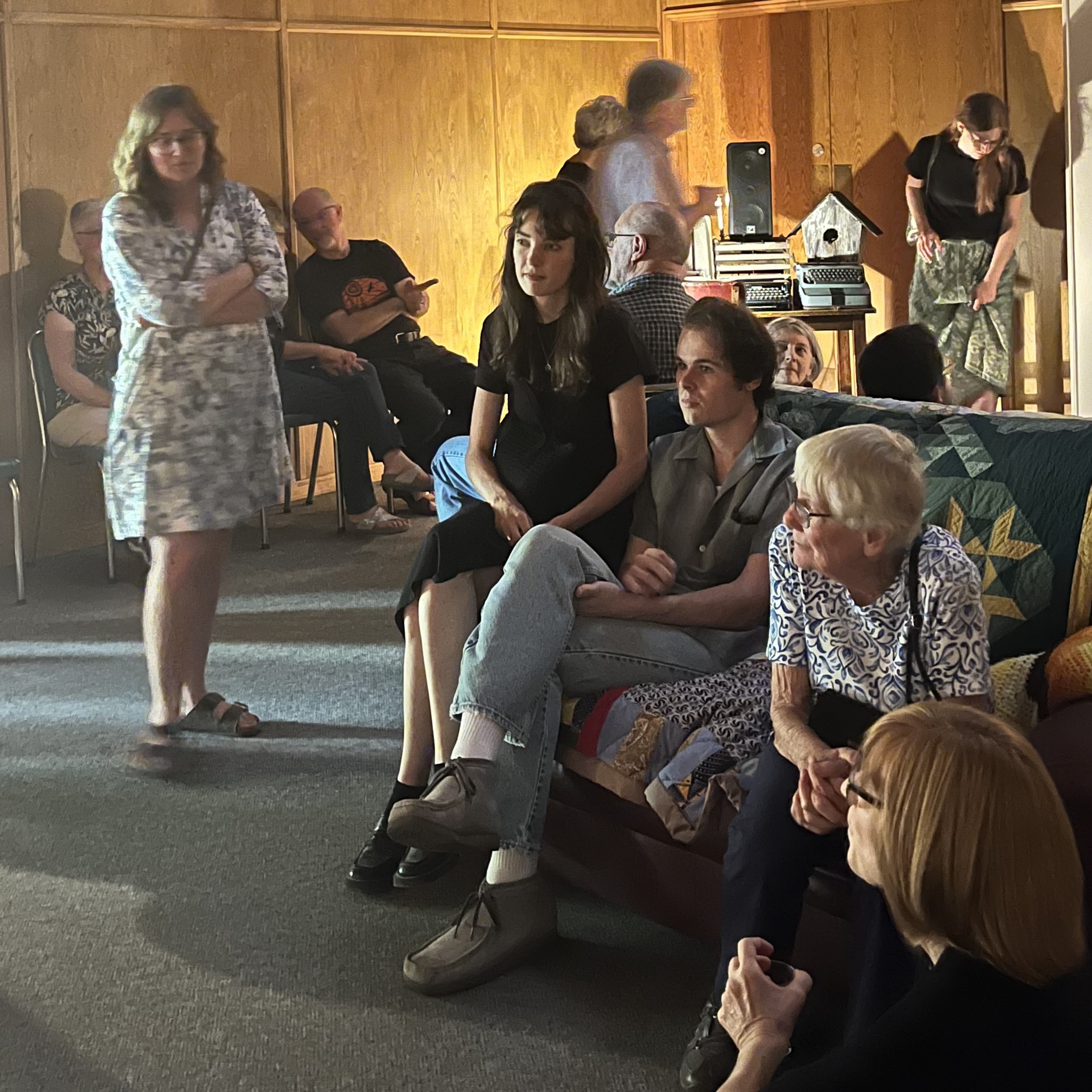


"Writers celebrate, broaden their craft" by Eileen Kinch in ANABAPTIST WORLD 22 July 2025
Mennonite/s Writing X Pre Conference Brochure 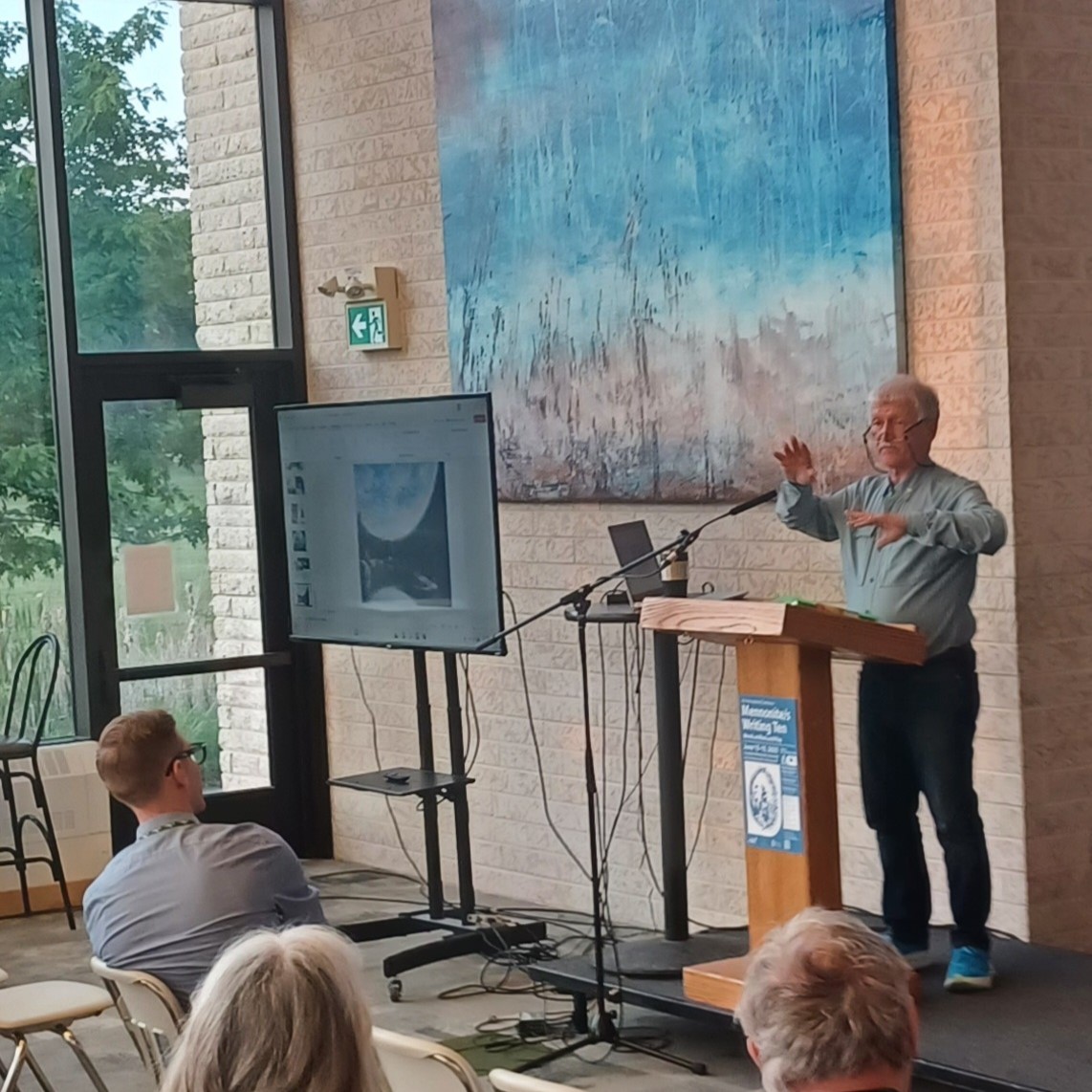
Mennonite/s Writing X Schedule
Mennonite/s Writing X Descriptions of Presentations & Biographies
Keynote Lectures
Translating Self and Other (Magdalene Redekop)
Friday, June 13, 8:00 PM
Marpeck Commons
In Making Believe: Questions About Mennonites and Art I explored a double Anabaptist legacy—the resistance to art that is part of written Reformation history and an oral trickster tradition that goes against the grain of that history. Here I will explore questions about translation. Translation is from the Latin translatio, which, like the Greek word metaphora, means "transfer, carry across." Why does the untranslatable sometimes transfer us to metaphor, so that we hear music and see images? When does the untranslatable carry across from the ineffable into the unspeakable? Why is mistranslation funny? When does it stop being funny? When does what is lost in translation make us laugh? When does it make us cry or recoil in horror? My talk will touch briefly on a range of texts to explore these and other questions.

Magdalene Redekop is Professor Emerita in the Department of English, University of Toronto. For many years the subject of her graduate teaching was comedy in Canadian fiction. Redekop's publications include Mothers and Other Clowns: The Stories of Alice Munro (1992) and Making Believe: Questions About Mennonites and Art (2020). Her essays "The Pickling of the Mennonite Madonna" and "Escape from the Bloody Theatre" are key works in the field of Mennonite literary criticism. Presently she is at work on a book entitled The Remains of an Elegy: My Friendship with Alice Munro. Dr. Redekop's conceptual work with the Mennonite Spielraum (playroom) contributes a foundational theme of this conference.
Mennonite Ruminant, Notes from the Eleventh Province (Julia Spicher Kasdorf)
Saturday, June 14, 11:00 AM
Marpeck Commons
Let me meditate on matters of literary representation and “the Mennonite thing,” to borrow a phrase from Robert Zacharias. In various ways, critical and commercial currents create publication opportunities and shape the reception of work by authors marked by ethnicity. As such a writer living in United States, I will offer notes from my own experience of multiculturalism and the politics of representation during the 1990s, and the politics of identity now in operation. I aim to amplify distinct resources and practices from within our cultural traditions to help writers and readers keep on doing the work of literature.

Julia Spicher Kasdorf, Liberal Arts Professor of English at Pennsylvania State University, has published four books in the Pitt Poetry Series, including her 2023 collection, As Is. With photographer Steven Rubin, she created Shale Play: Poems and Photographs from the Fracking Fields, a large format documentary project depicting human and environmental impacts of horizontal drilling and hydraulic fracturing in Pennsylvania. She is working with Rubin on a similar project to show the range of agricultural resilience within thirty miles of her home in Bellefonte, Pennsylvania. She is also the author of The Body and the Book: Writing from a Mennonite Life and the biography Fixing Tradition: Joseph W. Yoder, Amish American.
(Keynote to be published at a later date)
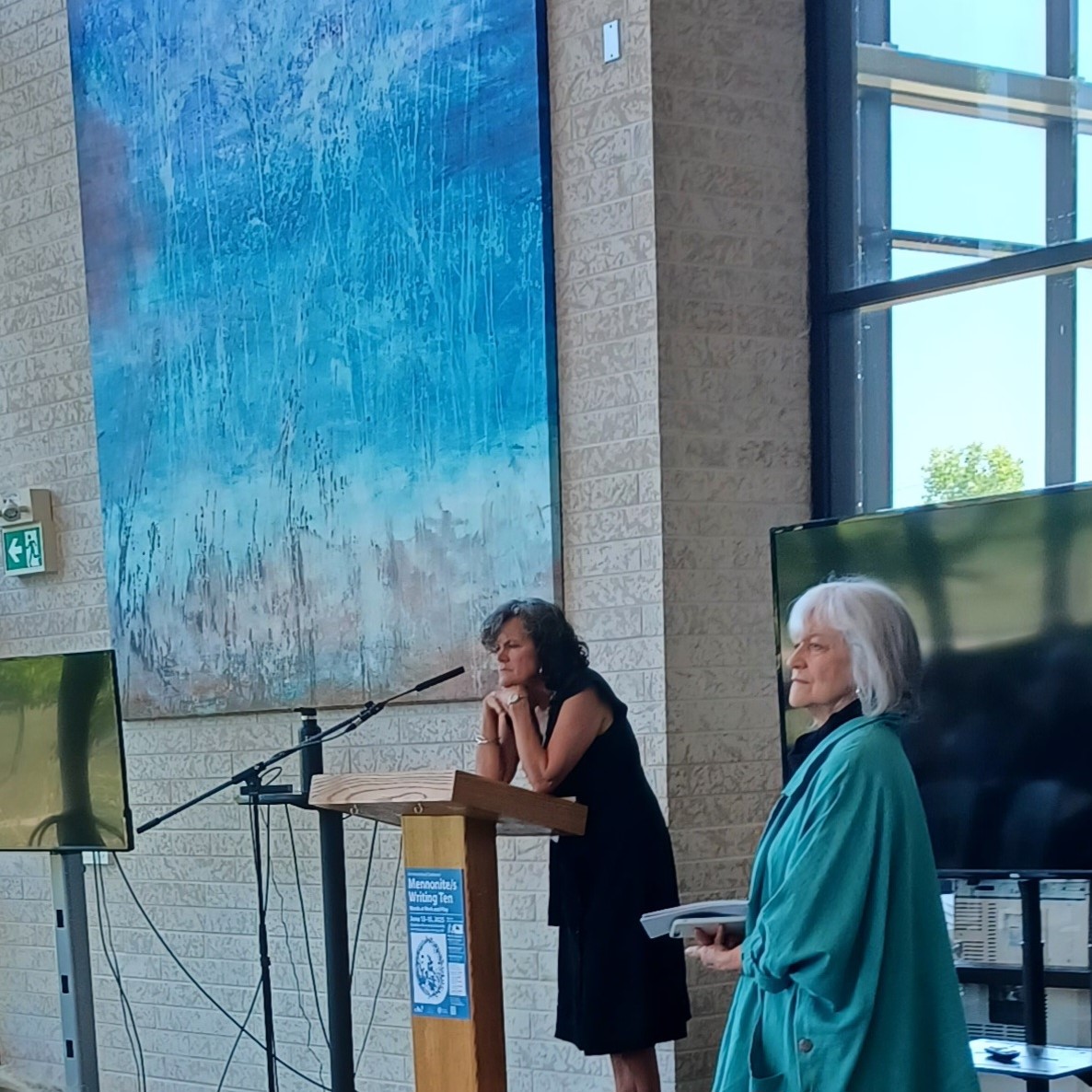
The Meaning of Everything: Experience, Science, Imagination (David Waltner-Toews)
Saturday, June 14, 8:00 PM
Marpeck Commons
It begins with a young cow bumping against him and licking his coveralls, with manure on his boots, and news broadcasters worried about Mad Cow Disease. As he explains to the broadcasters what such behaviour means, veterinary epidemiologist Waltner-Toews begins a journey in which he questions everything he has been taught about other animals, kinship among species, pandemics, and the nature of the universe. Drawing on his own experiences working around the world, and evidence from genetics, physics, ecology, music, medicine, and poetry, he grapples with a new understanding of what it means, in the words of Torres Straits Islander Kerry Arabena, to be indigenous to the universe.

David Waltner-Toews is University Professor Emeritus in the Department of Population Medicine at the University of Guelph. A member of the Order of Canada, Waltner-Toews is a founding president of both Veterinarians without Borders–Canada and the Network for Ecosystem Sustainability and Health. His books include poetry collections such as The Gravity of Love and The Complete Tante Tina: Mennonite Blues and Recipes; the short stories in One Foot in Heaven; the mystery Fear of Landing; the science titles Food, Sex and Salmonella: Why Our Food Is Making Us Sick; The Origin of Feces: What Excrement Tells Us About Evolution, Ecology, and a Sustainable Society; Eat the Beetles! An Exploration into Our Conflicted Relationship with Insects; On Pandemics; and the memoir A Conspiracy of Chickens.
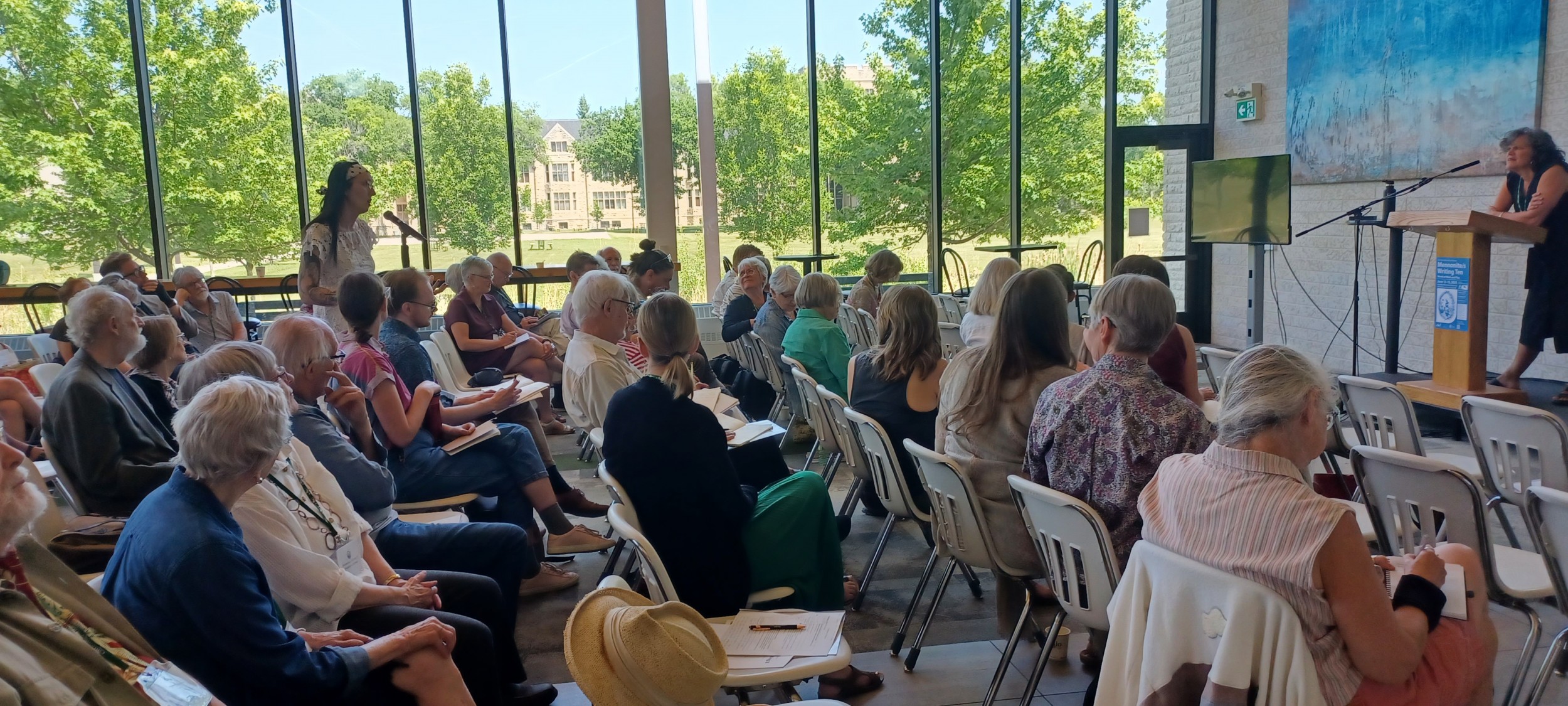
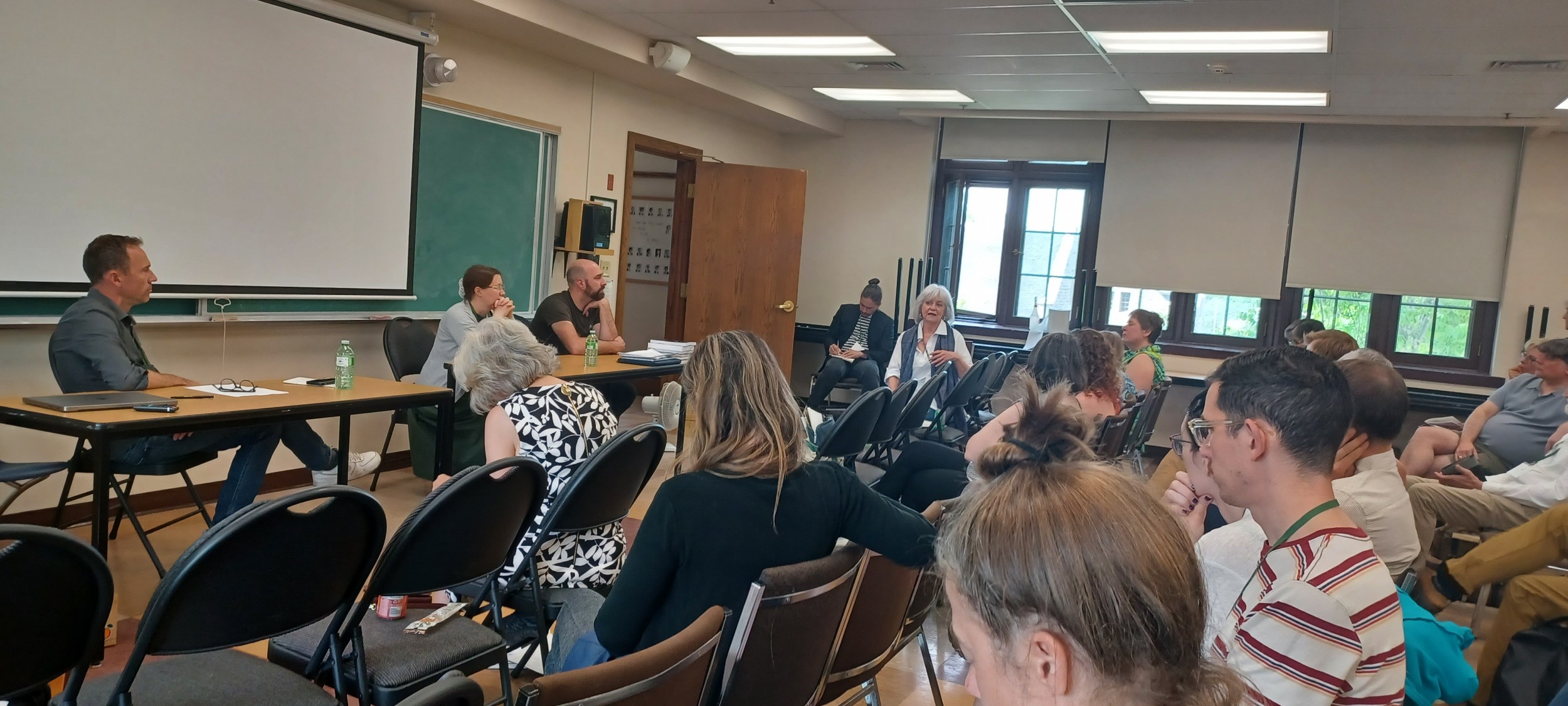




 Print This Page
Print This Page